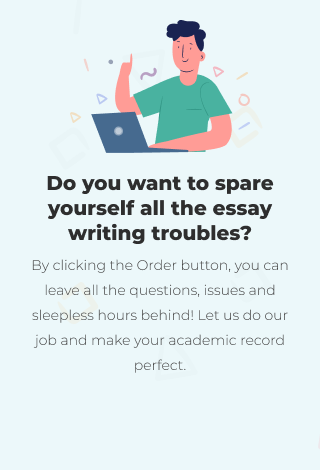
A sadistic writing prompt commands you to condense your adolescent essence in 1000 words or less. Hm, how to start writing a personal statement?
If you, just like any other high school senior, are flummoxed by the challenge, let us put you at ease. Writing a personal statement that pops out of a heap is a difficult but completely manageable task. To help you in your academic pursuit, we’ve analyzed hundreds of personal statement introduction samples and put together an actionable guide on writing that life-determining paragraph.
Loosen up, sit comfortably, and let’s get to work.
How to Start Off a Personal Statement – Do Not Go Overboard
Yes, you want to show your writing aptitude; yes, you are eager to imbue each sentence with your personality; yes, you want to leave the competition in the dust. Good, good, and great! But, for Pete’s sake, do not overkill the introduction.
Even though it is paramount to reel your reader in the personal statement, it should be done with relevant, meaty ideas, rather than a cheap gimmick. There are plenty of ways to write an attention grabbing introduction without resorting to trickery. One would be to give them a glance of an intensely personal experience that can strike a visceral cord. Another is to build up a mystery at the onset and in the process of dissipating it, reveal relevant information about yourself. Both approaches are likely to produce an appreciative read.
Tips from Experts
- Show your interest in the course and demonstrate your understanding of it;
- Communicate your enthusiasm for the educational institution;
- Get to the point right away and stay on track;
- Write what comes to your mind naturally;
- Be candid from line one;
- If you desperately need relief from your personal statement angst, leave the first line until later.
- If the struggle is too unbearable, personal statement help may be your choice.
Personal Statement Introduction Examples to Avoid
Going beyond clichés is an imperative applicable to your personal statement, in general, and its opening paragraph, in particular. Do not recycle worn-out introductions. What are those? Ahead are five opening lines that are boilerplate enough to give the admissions officers an aneurysm:
- For a long time…;
- From a young age…;
- The reason I am applying for this course is…;
- I have always been interested in…;
- I have always dreamt about…
Say ‘No’ to Opening Quotes
Quotations are a pet peeve of admissions officers. To read one as a personal statement opening sentence is painful for them. If, however, the quote is unaccompanied by an explanation of why it was included, it is regarded as a capital offense. Why? Because the members of the admissions committee are not interested in what Obama/Malala/Gandhi has to say; they want to read your thoughts. It is incumbent upon you to oblige them.
How to Write a Personal Statement Introduction? Tie It to the End
When considering how to start a personal statement essay, think of your closing statement. This creative shortcut is known as the “necklace approach.” Basically, you have to tie together your first and last sentences, thereby reinforcing them and adding a new dimension to your writing. Let’s say you’ve introduced the readers to the motivation behind enrolling to the course. A great closing would reiterate and expand that idea, thereby solidifying in the readers’ mind your willingness to join the educational institution.
Pro Tips on Crafting a Personal Statement Opening
Ahead are more tips on crafting a personal statement that pops:
- Start Small
Remember, it’s easier to dispense with a sentence than an entire page. Take the first small step toward producing a worthy opening by crafting a sentence. Then, let it be and write another one. By writing several opening sentences in a row, you may stumble upon a creative gem worth keeping. The lackluster introductory lines can be tossed away.
- Don’t Shun the Mundane
Look for inspiration in mundane experiences. With enough creative zest and gusto, they could be turned into a gripping personal statement.
- Make a List of Personal Qualities
Write down the personal traits you would like to be reflected in your writing. Be cognizant of them when crafting the personal statement. It will help you demonstrate those qualities to the admissions committee.
- Keep it Short
Avoid circumlocution. Keep it simple. Admissions officers are not keen on reading opuses; they want to be introduced to short, worthy moments of your life.
- Make a List of Your Accomplishments
Think of your accomplishments in and out of school. Create an improvised resume that will help you keep in mind your personal breakthrough while writing the essay.
- Read Other Personal Statements
Familiarize yourself with personal statements written by admitted students. Distill valuable lessons and try to incorporate them into your own writing. By better understanding the competition, you will have a clearer idea of how to beat it.
- Don’t Sweat It
Stop worrying; you can do it! If you need more, ask us to “write my admission essay” or “do my literature research“, or anything else your school demands from you.





